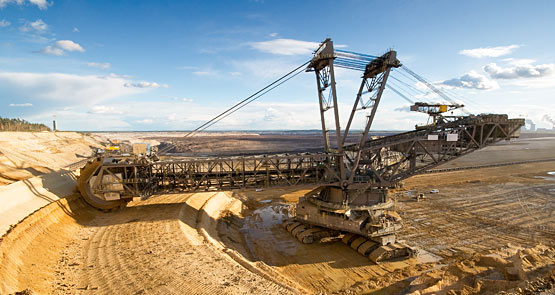
QE fail. Happy birthday, QE, from the ECB! (That’s “quantitative easing from the European Central Bank”.) Today is the first birthday for the spending program launched a year ago, and then expanded by negative interest rates (now 0.30%) on bank deposits. The ECB meets tonight and is widely expected to either add to its easing spending and/or lower its rates further to 0.50%. In fact, it is a step further into unknown territory, as the Bank for International Settlements has pointed out this week. One year in and you’d have to say that after spending the best part of 700 billion euros buying bonds (yep, that’s well over A$1 trillion) and months of negative rates, not much has happened. The easing was supposed to have two impacts — raise inflation and increase bank lending — to get economies humming. Unemployment is falling slowly, most euro economies are growing — some faster than others, but inflation remains negative (perhaps due to the fall in oil prices, which the ECB seems not to have foreseen a year ago). In fact the latest inflation reading for February showed the eurozone had fallen back into deflation: -0.2% against -0.3% in February 2015. And European sharemarkets, having peaked at multi-year highs 11 months ago, are now down 14% or so. — Glenn Dyer
More neggo madness. Still in Europe, and a small German bank has become the first non-sovereign borrower to issue euro-denominated debt carrying a negative yield, and it looks like it won’t be the last. Ahead of tonight’s ECB meeting, the Berlin Hyp issued 500 million euros of covered bonds (they are backed by mortgages, and the lenders have recourse to the issuing bank if the bond fails) with no coupon and priced to yield -0.162% on Tuesday, according to Bloomberg. That means investors are guaranteed to lose money if they hold the bonds to maturity. Covered bonds are regarded among the safest of all non-sovereign bonds (Australian banks have been selling them for years and raising money). The Japanese government last week issued the first sovereign bond with a negative interest rate, and there is an estimated US$6 trillion of bonds — sovereign, corporate and others — trading at negative rates in Japan and Europe at the moment. This growing trend to negative interest rates raises an interesting question for tax revenues for government in coming years. If the buyers of the bonds have to pay the issuing group to hold the securities, can they claim a tax deduction, instead of paying tax on the income received? — Glenn Dyer
Kiwi cuts. The Reserve Bank of New Zealand has cut its key interest rate for the fifth time in a year this morning, reducing the official cash rate by 25 basis points to 2.25%, and blaming the weak outlook for growth internationally, slowing activity in the domestic economy and the need to force the value of the dollar lower (it had risen 4% since December). That still leaves the Kiwi rate around 0.25% higher than Australia’s. The RBNZ said that, domestically, the housing boom in Auckland has eased somewhat, but the slump in dairying (where Australian banks have $30 billion of exposure) is a growing concern. — Glenn Dyer
Twiggy vents. According to this morning’s Australian Financial Review, Twiggy Forrest is upset at being questioned by regulators over the proposed Fortescue deal with rival iron ore miner Vale, of Brazil, that, if approved, could allow Twiggy and Vale to control the company between them. The AFR reported this morning that Twiggy has called for an inquiry into what he claims is an attempt by rival iron ore producers (read BHP and Rio Tinto) to crush competition by producing and selling as much iron ore as possible — in turn, harming the Australian economy. They are the same sort of comments he was making a year ago. But the plunge in global prices and the exporting strategies of BHP, Rio, and Vale, have forced the industry to slash costs, streamline themselves and lower production costs to survive; which is what Fortescue did, surviving the rout last year. But Forrest and his would-be partner face months of scrutiny from key regulators — not in Australia; they are in China, Europe and Japan, South Korea which are the major markets for Vale and Rio. China looms as the most sensitive.
Meanwhile, iron or prices fell 8.8% overnight to below US$60 a tonne, taking the fall, since Monday’s near-19% surge, to 10%. It will keep on falling, off and on, because the market is heavily oversupplied. But don’t tell the Turnbull government in Canberra; according to Fairfax Media this morning, the government is looking at a “resources led windfall in budget”. Spare me daze, the Magic Pudding lives on. — Glenn Dyer







Crikey is committed to hosting lively discussions. Help us keep the conversation useful, interesting and welcoming. We aim to publish comments quickly in the interest of promoting robust conversation, but we’re a small team and we deploy filters to protect against legal risk. Occasionally your comment may be held up while we review, but we’re working as fast as we can to keep the conversation rolling.
The Crikey comment section is members-only content. Please subscribe to leave a comment.
The Crikey comment section is members-only content. Please login to leave a comment.